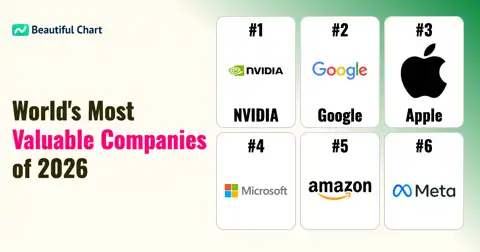This chart compares the GDP of Africa and South Korea from 1980 to 2024. It visually presents the economic growth of South Korea and the economic development trends of African countries. The chart highlights the economic disparities between South Korea and African nations.
GDP (Gross Domestic Product) represents the total value of all goods and services produced within a country over a specific period, serving as a crucial indicator of the nation's economic size.
1980s
In 1980, the GDP of the Republic of Korea was $65.37 billion, while South Africa's GDP was $89.41 billion. South Korea experienced rapid economic growth starting in the early 1980s, primarily due to the expansion of manufacturing and exports. This period saw significant growth in high-value industries such as electronics and automobiles. In contrast, despite its abundant natural resources, South Africa's economic growth was limited due to political instability and the apartheid policy.
1990s
In 1990, the GDP of the Republic of Korea surged to $283.37 billion, while South Africa's GDP was $126.03 billion. South Korea continued its robust economic growth throughout the 1990s, driven by advancements in information and communication technology and its competitiveness in the global market. However, South Africa faced economic instability during the transition period as the apartheid regime ended.
2000s
In 2000, the GDP of the Republic of Korea was $576.48 billion, and South Africa's GDP was $151.86 billion. South Korea quickly recovered from the IMF financial crisis and saw significant developments in the information technology (IT) industry and service sectors. Post-democratization, South Africa's economy stabilized but still faced high unemployment and inequality, limiting its growth.
2010s
In 2010, the GDP of the Republic of Korea reached $1.143 trillion, while South Africa's GDP was $417.32 billion. South Korea established itself as a global economic power during this period, particularly excelling in the semiconductor and smartphone industries. South Africa achieved economic growth due to its resource industries, but political instability and corruption issues limited this growth.
2020s
In 2020, the GDP of the Republic of Korea was $1.644 trillion, and South Africa's GDP was $338.19 billion. Despite the COVID-19 pandemic, South Korea maintained relatively stable economic growth and identified new growth drivers such as the digital economy and bio-industry. South Africa's economic growth slowed significantly due to the pandemic, and the country continues to face high unemployment and economic inequality.
The Republic of Korea has consistently grown its economy through continuous industrial development and competitiveness in the global market. In contrast, African countries, despite their abundant natural resources, have shown limited growth due to political instability and economic structural weaknesses. Overcoming these challenges requires a more stable political environment and diversified economic structures.
| Rank | Name | Indicator |
|---|---|---|
1 | $ 1T 760B | |
2 | $ 373B | |
3 | $ 347B | |
4 | $ 266B | |
5 | $ 252B | |
6 | $ 205B | |
7 | $ 152B | |
8 | $ 104B | |
9 | $ 92B 123M | |
10 | $ 86B 911M | |
11 | $ 79B 605M | |
12 | $ 75B 244M | |
13 | $ 73B 761M | |
14 | $ 56B 310M | |
15 | $ 54B 708M | |
16 | $ 53B 205M | |
17 | $ 48B 221M | |
18 | $ 35B 450M | |
19 | $ 34B 405M | |
20 | $ 29B 872M |





